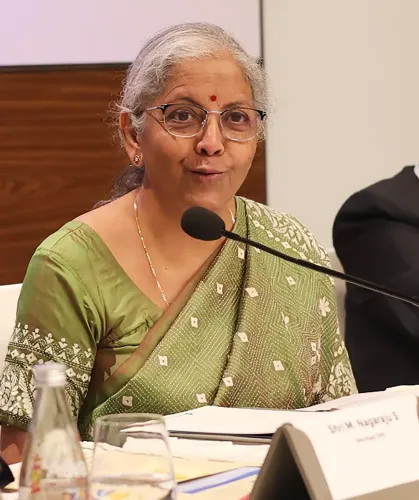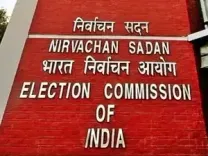Why Should Mental Health Be a National Priority?

Synopsis
Key Takeaways
- Mental health is linked to physical health, affecting productivity and social functioning.
- Government initiatives alone are insufficient to bridge the treatment gap.
- A National Mental Health Alliance could promote advocacy and visibility.
- Integrating mental health into various sectors is crucial.
- Increased accessibility to care is needed to support affected individuals.
New Delhi, Oct 2 (NationPress) With the rising number of individuals suffering from depression and anxiety, prioritizing mental health on a national scale is crucial for India to foster healthier, more productive, and more resilient communities, experts stated on Thursday.
The National Mental Health Survey (2016) indicated that approximately 13.2% of Indians face a diagnosable mental health issue in their lifetimes, with 10.6% currently impacted.
Put simply, about one in ten Indians grapples with conditions such as depression, anxiety, or substance use disorders, with depression being the most prevalent, especially among women.
Although initiatives like Tele-MANAS are providing essential first-response counseling in various languages, these measures alone cannot fill the significant gap.
In a discussion with IANS, Dr. Prabha Chandra, Senior Professor of Psychiatry and former HOD of Psychiatry at NIMHANS Bangalore, emphasized that mental health is closely linked to physical health.
Research has shown that individuals with mental illnesses often have increased rates of chronic conditions such as diabetes and hypertension, while those with long-term physical health issues are more susceptible to depression and anxiety. Poor mental health negatively impacts productivity, education, and social functioning — whether in workplaces, schools, or communities.
“It is vital to incorporate mental health into all sectors: schools, workplaces, women’s shelters, police services, and beyond. Not everyone will seek help in hospitals or clinics, so we must reach individuals in their environments,” Chandra stated.
“Raising the profile of mental health at both central and state levels is an immediate necessity,” Dr. Shekhar Saxena, Former Director of the Department of Mental Health and Substance Abuse at the World Health Organization (WHO), added.
This approach will tackle the “high prevalence and burden of mental health conditions, elevated suicide rates, and a significant treatment gap, with nearly 80-90% of individuals not receiving necessary care,” he noted.
Despite the prevalence of mental health conditions in India aligning with global figures, specific concerns exist.
“India faces significant mental health challenges among women, adolescents, and children, alongside a troubling rise in suicide rates in certain demographics,” Saxena remarked.
Dr. Chandra explained that the National Mental Health Programme (NMHP), now recognized as the District Mental Health Programme (DMHP), encompasses over 700 districts, employing teams of psychiatrists, psychologists, social workers, and nurses.
“However, with 10% of the population in need of care, having a single team per district is grossly inadequate. Training primary care physicians has aided in recognizing common disorders, but the treatment gap remains alarming — 70-75% for severe conditions and even higher for less severe issues,” she added.
Moreover, urban centers experience additional challenges related to anonymity and access, while rural regions are heavily dependent on primary health centers. Initiatives like Tele-MANAS provide critical first-response counseling in multiple languages, and the National Suicide Prevention Strategy acknowledges the societal roots of suicide.
“However, governmental efforts alone cannot close the gap. We urgently require more counselors, psychologists, social workers, and nurses, alongside innovative task-sharing models,” experts asserted, advocating for a formal industry body.
A National Mental Health Alliance would enhance “visibility, advocacy, and collaborative problem-solving,” according to Chandra.
“By prioritizing mental health at a national level, India can cultivate healthier, more productive, and more resilient communities,” she concluded.









